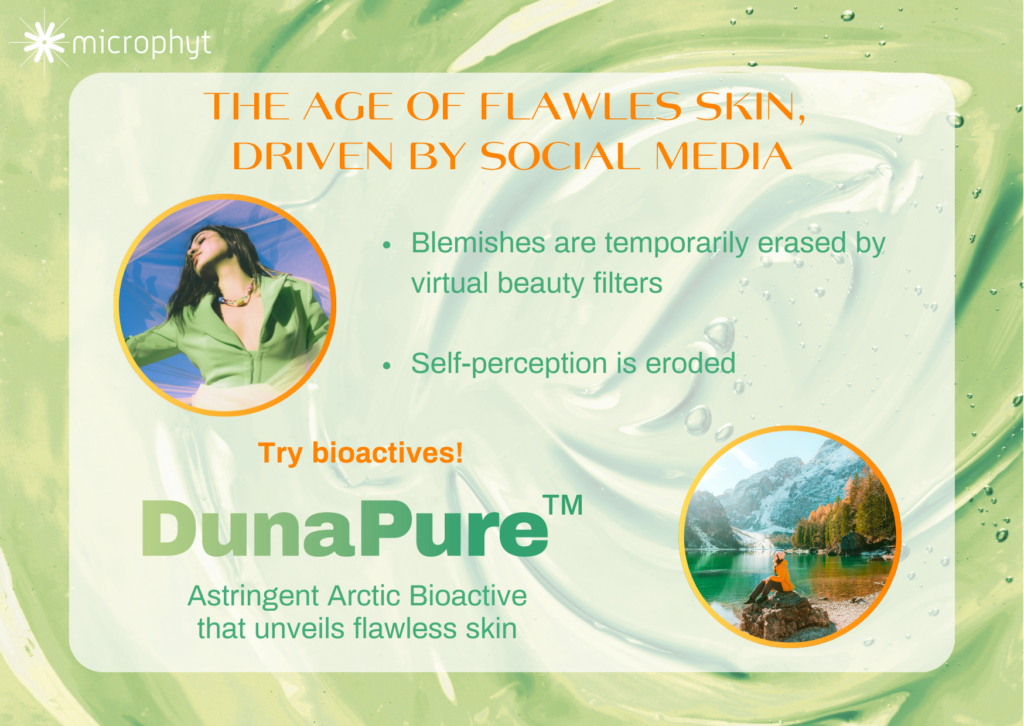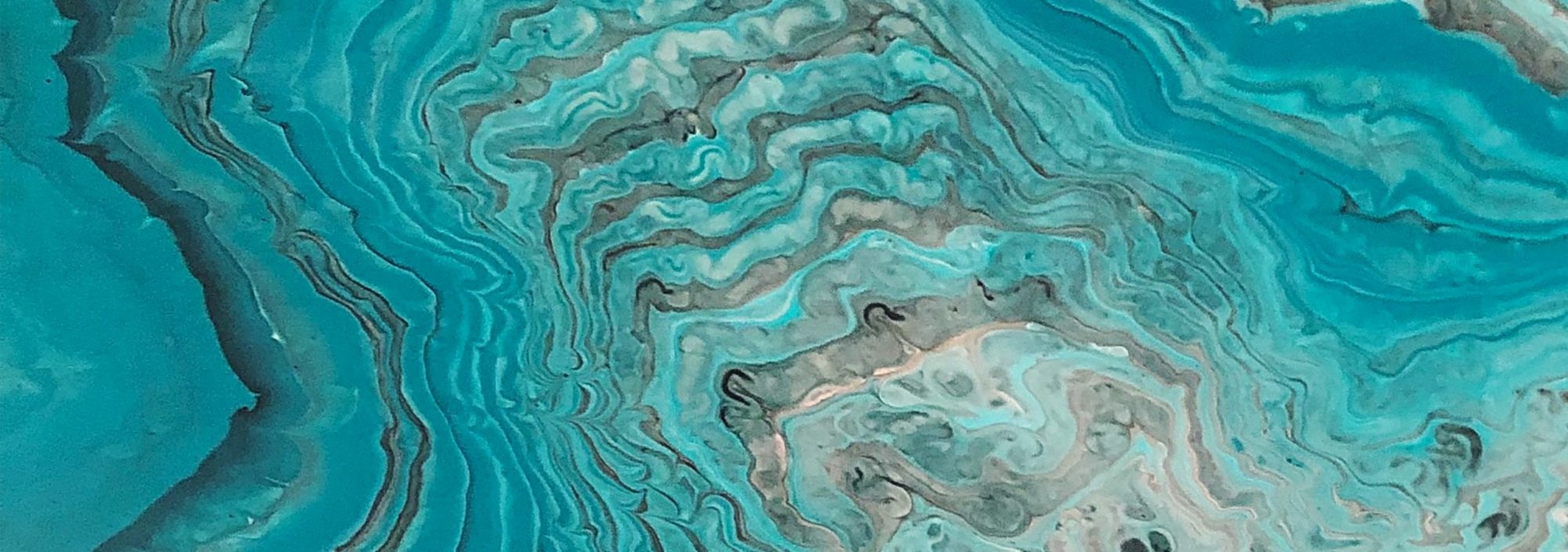

DunaPure™: a 3-in-1 clarifying bioactive for flawless skin
January 8, 2025
Beauty filters have prompted a seminal shift in skin care, giving way to the ‘age of flawless skin’. Responding to this, Microphyt has developed DunaPure™, a unique 3-in-1 bioactive derived from Arctic microalgae that gently targets a clearer, healthier-looking complexion.
The incredible popularity of beauty filters on social media apps like Instagram and TikTok has led many beauty fans on a quest to ensure that their skin can match up to these expectations. Realistic or not, this pressure means consumers are looking for solutions to help them vanish imperfections and help them achieve the best-looking skin possible.
Skin imperfections can manifest in a variety of ways, but primarily as clogged pores, redness and marks. Clogged pores are caused by dead cells, and oxidized sebum build up, which can lead to enlarged pores that are more visible. Redness is one of the four primary signs of inflammation as a biological response to fighting irritants. Meanwhile, marks can take the form of red or brown spots are caused by the scarring that is left after such imperfections heal.
So, what causes these imperfections?
The short response is all that life throws at us each day. The more detailed reason is multiple and omnipresent causes that are difficult to simultaneously tackle in a balanced and effective way. Those reasons include hormonal fluctuations, stress and a lack of sleep, environmental hazards such as pollution and UV rays, imbalances in the body’s microbiota and unbalanced diet.
In diametric opposition to the many obstacles that make perfect skin so challenging to achieve, the explosion in beauty filter use is putting even greater pressure on consumers to achieve the closest thing possible to a perfect complexion. While statistics show that 90% of young women in the UK are using beauty filters and 600 million Facebook and Instagram users apply a beauty filter each month, research shows that 100% of survey respondents believe that society places too much emphasis on appearance.*
Traditional assets: efficiency that’s not for everyone
In the quest for the perfect complexion, skin care formulators have traditionally turned to three ‘gold standard’ ingredients: Retinol, salicylic and glycolic acid. But the strong active properties of these ingredients are not suited to all skin types. Retinol has a photosensitizing effect and an irritant effect and can dry out skin, leading to discomfort; salicylic acid has a photosensitizing effect, and can cause tingling and discomfort; while glycolic acid is also photosensitizing, and can weaken the skin and cause reactions.
DunaPure™ is a natural, gentler solution for clear skin
The Microphyt team believes that DunaPure™ is mother nature’s solution. Developed using Dunaliella tertiolecta green microalgae that originates from the clean waters off the Norwegian coast, this remarkable plant develops strong astringency abilities in the harsh marine environment, resulting in an extract with heightened protective and regenerative effects on the skin, while also be highly gentle.
Microphyt uses a controlled cultivation and extraction process that concentrates the key molecules of interest. This results in an oil-soluble bioactive that makes up DunaPure™ that is backed by clinical trials proving it purifies pores while reducing redness and marks.
The 3-in1 benefits of DunaPure™ are:
- Purifying the skin by rebalances the skin, improving sebum quality and preventing clogged pores
- Soothing the skin, helping to reduce inflammation and respect the skin barrier health
- Smooths skin imperfections, promoting the skin barrier and cell renewal, while reducing visible marks

*Isakowitsch: How Augmented Reality Beauty Filters Can Affect Self-perception. Artificial Intelligence and Cognitive Science. (2022); Rosalind Gill, City, University of London: Changing the perfect picture: smartphones, social media and appearance pressures (2020); The hidden danger of online beauty filters: 175 participants living in the UK, aged between 18 and 30, 82% were women, 16% men and 2% nonbinary; Tara Well (2023).




